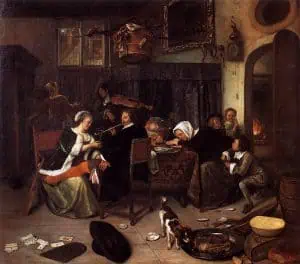At the beginning of this year, the Council of State issued a remarkable ruling that holiday rentals (AirBnB) without a permit are prohibited under the Housing Act. Until then, holiday rentals had been allowed in a number of municipalities without a permit provided that the lessor met a number of conditions. As a result of the ruling, the municipality of The Hague has now banned holiday rentals altogether, and in Amsterdam it has since been banned in a number of neighbourhoods. In this blog, however, we will discuss certain forms of housing that may also be prohibited by this ruling without a permit.
The ruling
Before we discuss the possible effect of the ruling, we will first return to the essence of the ruling. The Council of State has confirmed that, pursuant to Section 21 under a Hw (Huisvestingswet = Housing Act), it is prohibited to withdraw residential property from its intended use without a permit issued by the municipality. To that extent, there is no news, but the Council also ruled that the Housing Act does not provide the authority to grant an exemption from that prohibition. In short, the policy of allowing holiday rentals without a permit under certain conditions, as was the case in Amsterdam, for example, does not comply with the law. The municipalities will therefore have to introduce a permit system to make holiday rentals possible again.
Municipalities allow house sharing with 2 persons
Therefore, it is not possible to withdraw residence without a permit, but Article 21 of the Hw mentions more activities that are prohibited. For example, pursuant to Section 21(c) of the Hw, it is also not permitted to convert or keep self-contained living accommodation into non-self-contained living accommodation. This conversion is, for example, the case if a home that is originally intended for one household, is being rented out to more than one household. Conversion is already subject to a permit requirement in Amsterdam, for example, but just as in the case of holiday rentals, it is permitted under certain conditions.
“A permit requirement does not apply to conversion due to occupancy by two persons. After all, the municipality of Amsterdam does not want to treat two friends who live together any differently than a couple”[1]
The municipality of Nijmegen implicitly states the same thing by only explicitly prohibiting conversion to more than two non-self-contained dwellings.[2] The municipality of Utrecht also only imposes a permit requirement in the event of conversion for the benefit of more than two persons.[3] The municipality of Rotterdam, on the other hand, takes an even more flexible attitude. It argues that a conversion permit is only required if there are 4 or more people living in a room.[4]
Despite the fact that these municipalities have the apparent aim of (restrictively) admitting house sharing without a permit, the Housing Act, if we follow the decision of the Council of State, offers no opportunity for this other than with a permit, just as in the case of holiday rentals.
Hospita (landlady) rental
In addition to room rental, hospita rental is also a form of housing. Hospita rental is a form of room rental in which the landlord also lives in the house. The housing ordinance of, for example, Nijmegen includes a special exception for hospita rentals.[5]
“The licensing requirement referred to in paragraph 1(b) of this Article does not apply to a situation with a hospess/hospita”.
But also in other municipalities hospita rental is allowed without a permit. However, again in view of the ruling of the Council of State, it seems to us that this is not possible under the Housing Act.
The concept of household
Whether a permit is required is crucial whether the dwelling is inhabited by more than one household. Although the concept of household is not defined in the Housing Act, it appears from the legislative history that the legislator assumes that in the case of a house being let by a room, the house as a whole no longer constitutes a separate dwelling. In addition, the Council of State has interpreted the term ‘household’ to mean a household if it can be assumed that there is an intention among the occupants to form a household for an indefinite period of time.[6]
The latter is not necessarily the case when, for example, a daughter who is studying shares a house with another fellow student, since there is usually no intention of letting her stay indefinitely. In short, strictly speaking, a conversion permit should also be applied for in this situation.
Enforcement
Finally, we come back to the current situation. As explained above, the consequence of the ruling of the Council of State that the sharing of housing by two (or more) persons each forming a separate household is thus prohibited and exemption without a permit is in fact not possible. Nevertheless, it is unlikely (and as far as we are concerned also undesirable) that municipalities would enforce the same if only because they see no need to do so for practical reasons. It therefore only becomes problematic when, for example, local residents request enforcement. In principle, municipalities are then obliged to enforce, which can lead to rather undesirable situations. Another option is, of course, to actually include all these situations in the permit system, but given the increasing bureaucracy, it would probably be even better if the legislator reviewed the Housing Act on this point. It will definitely be interesting to see in the coming period whether the line taken by the Council of State is actually consistently pursued.
Do you have any questions about this blog or would you like to know more about the (im)possibilities of house sharing? Please feel free to contact M2 advocaten.
Lawyer Ginio Beij (beij@m2advocaten.nl)
1] Explanatory notes Housing Ordinance Amsterdam 2020 p. 34
2] Housing Ordinance Municipality of Nijmegen 2020 Article 13 (1)
3] Housing ordinance Utrecht Region 2019, municipality of Utrecht article 3.1.2.
4] “Verordening toegang woningmarkt en samenstelling woningvoorraad 2019” (Rotterdam) article 3.2.2.
5] Housing Ordinance of the Municipality of Nijmegen 2020 Article 13 (2)
6] ABRvS 13 March 2013, ECLI:NL:RVS:2013:BZ3977

